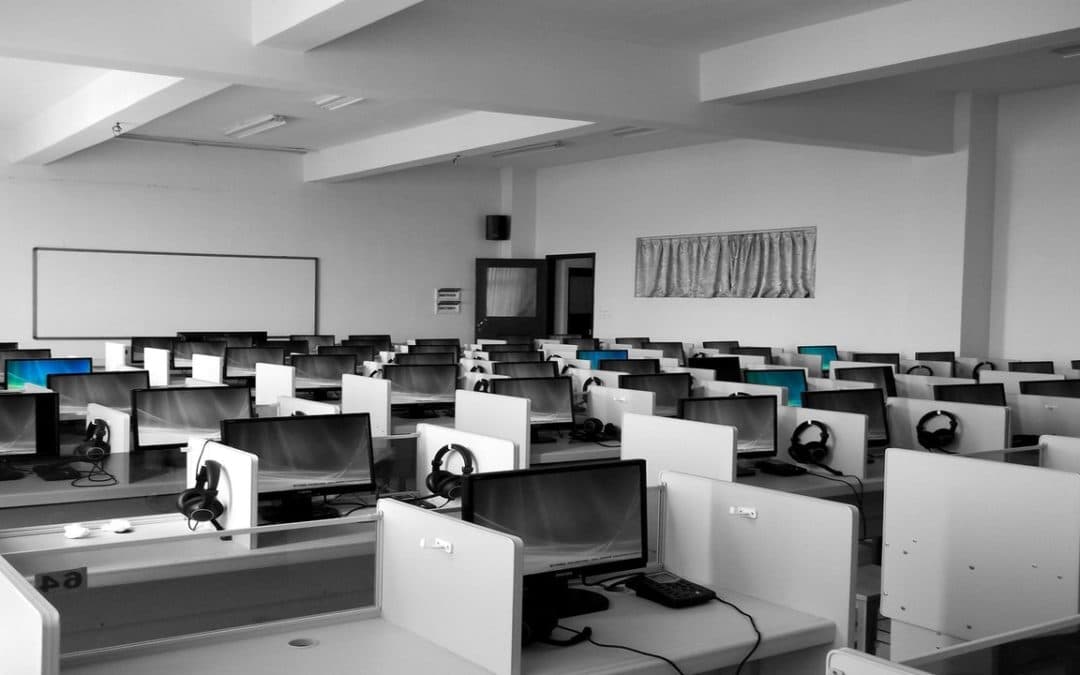The open office is a bad idea. It always was a bad idea. Study after study after study confirms this. It’s an idea that needs to die. But it probably won’t.
The open office was conceived in the 1950s, a decade of numb and rigid conformity. After the defeat of fascism and with the historical fluke of postwar prosperity buoying the middle class, the American management class had no appetite for rebellion and risk-taking. The specs for the first open office were developed by Germans, who, after getting shellacked in two world wars, were thirsty for revenge.
It was a slow, cold revenge. Now, in offices from Tokyo to London to New York to Venice Beach, we see the results.
Productivity drops by about 15% in open office environments. Job and workplace satisfaction drop, too. People get more sick more often. None of this is news, and it requires no citations.
And yet, the open office endures, as bad ideas often do when they serve certain interests. Because of marginal cost savings and the ability to enforce psychological control from the center of a fluorescent-lit panopticon, America’s bosses keep the open office in effect.
If you have to function professionally in such an environment – it’s likely that, at some point, you will – there are a few steps you can take to protect your sanity.
Forget About Privacy and Be Great At Your Job
Privacy is, and always was, an illusion. The open office is designed to make you well aware of how little privacy you have.
Paranoid middle-managers like open offices. They, of all people, know that most workers don’t do a hell of a lot of work most of the time, and most of what they do is more about “looking busy” securing their livelihoods than about contributing or risking anything meaningful. If anyone gets paid to waste time, it’s middle management.
How you do anything is how you do everything. That’s especially true when you’re constantly being watched.
One way to survive in an open office is to focus on your work until it’s done. And then go home, on time, every day. Avoid screwing around on the internet or obsessively checking Facebook. Handle your obligations.
You’ll probably find that you don’t have as much work as it seemed that you did when you had unlimited time to not do it. You may even find yourself becoming such an indispensable employee that you’re granted all sorts of freedoms that others are not.
Embrace the Social Aspect
You can also go the opposite direction and ease into open office ennui by devoting yourself entirely to the ample opportunities this setup provides for socializing.
There’s one demographic group that doesn’t mind open offices as much as the others. Want to guess which one it is?
Of course it’s the millennials. Millennials thrive with constant noise and hubbub. It goes with their aggressive extroversion. Open offices forbid solitary reflection and demand that we always put on a thin facade of enthusiastic #winning #letsgetit. They reward minimum substance as long as there’s maximum visibility.
Most millennials are bright enough to know what’s going on in the United States circa now. They’re doing their best, knowing they’ll never own homes, probably never be able to afford children, and be forever crushed under their student loans because the narcissistic boomers used up all the good times and pulled up the ladders. They know the rich get richer and company loyalty has given way to outsourcing, automation, and the Gig Economy.
They don’t want to do any focused work for a dying system that has proudly screwed them over. They just want to hang out with their friends.
If you can’t tolerate working in an open office in the way its designers and masters intend, you can try the Millennial Strategy and treat the office like an Insta feed. It’s rational behavior when you come to believe that office work is little more than a frustrating way to kill time.
Fight for Alternatives and Take Your Attention Back
How we direct and focus our attention is who we are. It’s all we are. Your attention is your life. Where attention goes, energy flows, and what we think about is what we are and what we will become.
The open office is one of the worst possible setups for becoming what you want or being your best self.
Open offices make us shallow and stupid. They force us to think about the salacious details of other people’s lives, their petty concerns, and whatever childish gripes they have today.
That’s because, in open offices, we never stop eavesdropping, mostly on gossip and chit-chat. This makes it difficult to do any deep work, prohibits all meaningful introspection, and eventually makes us bad citizens.
Open office environments hijack your attention and wreck your brain. They make it hard to focus. They assault you with a steady stream of toxic stimuli, all competing for your scarce attention.
The only way to fight this is to fight it. FIGHT it. Take your attention back.
Take up a meditation practice and train yourself to be mindful on the clock. Get involved in social causes you care about. Be relentlessly kind to others, for everyone is fighting a tedious battle, and probably has a headache from too-bright lighting and poor ventilation.
How you do anything is how you do everything. Whether you learn to love your work, love your coworkers, or love the quest for better conditions, you’ve got to love something.
Be yourself and be extraordinary. Even if everyone’s watching.
Emerson Dameron
Emerson Dameron is a writer, storyteller, and occasional comedian based in Los Angeles. Follow him on Twitter: https://twitter.com/

